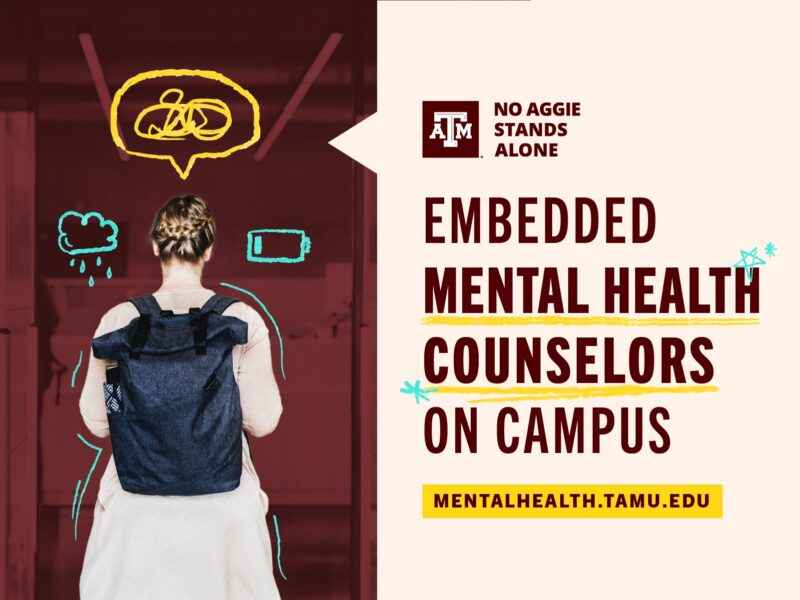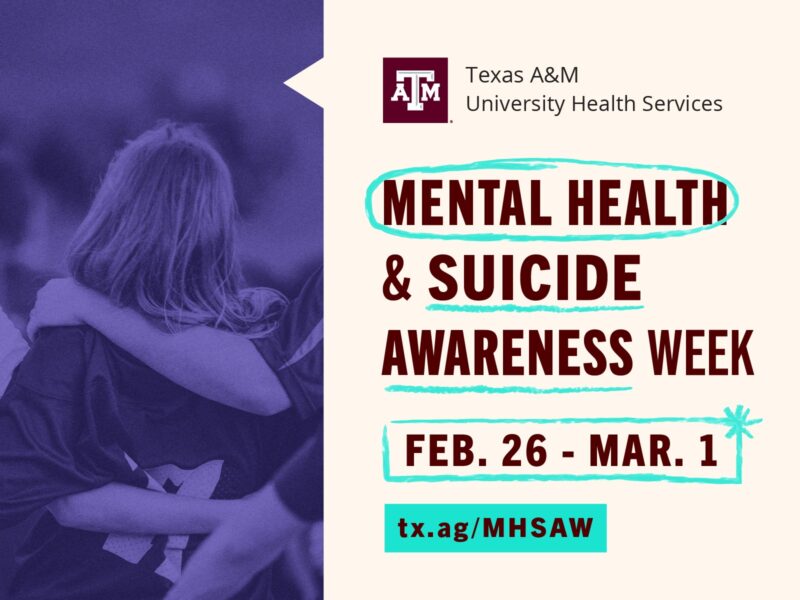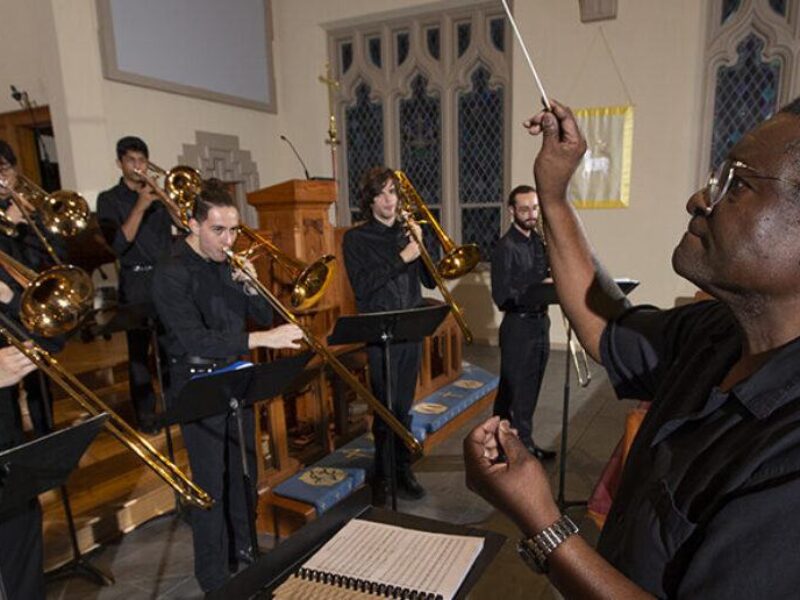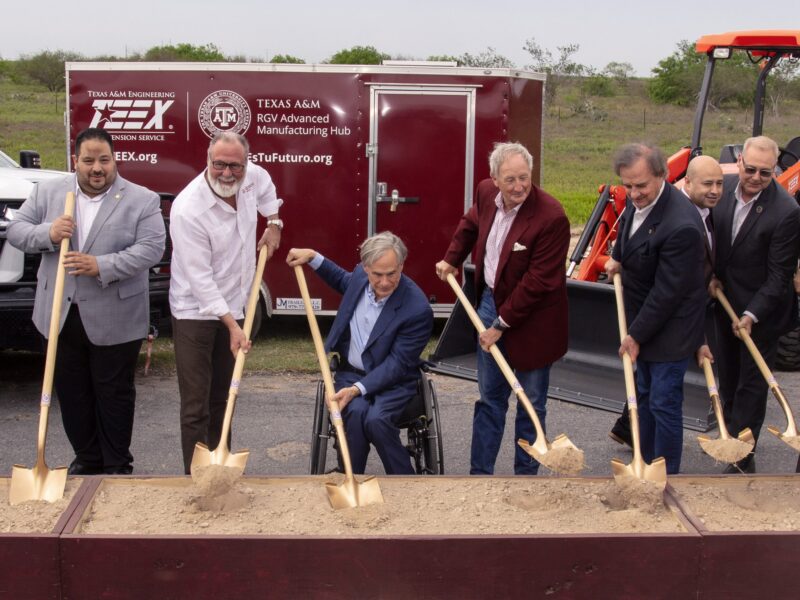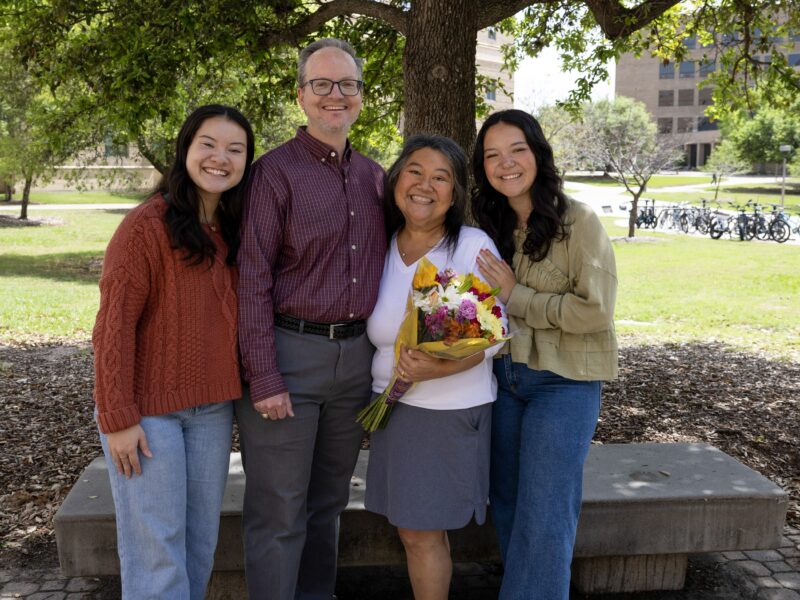Suicide Awareness & Prevention Office Launches New Peer Educator Program
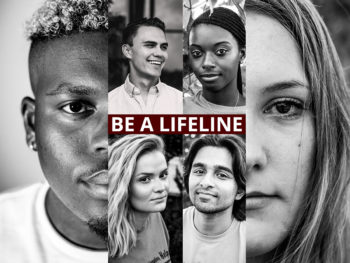
Aggies Reaching Aggies is a brand-new peer educator initiative with the primary mission to raise awareness and prevent suicide at Texas A&M University. The new program under the Counseling and Psychological Services’ Suicide Awareness & Prevention Office, will promote and develop campus education specifically designed for college students about suicide prevention and student mental health. The launch also provides the opportunity for Aggies to financially support the mission to reach other Aggies.
Donations will support Aggies Reaching Aggies, including in-depth educational training, program supplies, targeted marketing and campus programming. Each donation is an investment to fulfill Aggies Reaching Aggies mission to support the mental health of all Aggies and prevent suicide at Texas A&M.
In the program, volunteer peer educators are trained to deliver Question Persuade Refer (QPR), a suicide prevention training that equips Aggies to: recognize the warning signs of suicide, know what to say to someone who might be at risk for suicide and where to refer individuals for help. Peer educators are also trained to facilitate Campus Connect, an interactive training providing participants opportunities to enhance their knowledge, awareness and skills concerning college student suicide.
“We want to give students the opportunity to learn from each other and to be part of preventing suicide at Texas A&M,” said Santana Simple, assistant director of the Suicide Awareness & Prevention Office. “This new gatekeeper training program will capture the student experience at Texas A&M and will be infused with Aggie culture.”
A gatekeeper is someone who can recognize and refer someone who is at risk for suicide. This training focuses on increasing gatekeepers’ knowledge about students in a suicidal crisis, developing empathic listening and communication skills, and how to compassionately and directly ask students about their suicidal thoughts. Volunteers will also participate in campus advocacy and additional outreach initiatives.
Suicide is the second leading cause of death for college-aged students, claiming the lives of roughly 1,100 to 1,400 college students a year, according to The Jed Foundation. As the COVID-19 pandemic continues to impact student mental health and well-being, Aggies Reaching Aggies will focus on messages of hope and educate fellow students on how they may directly help a peer who is struggling. Peer ambassadors have a significant focus on creating meaningful connections between students.
“Texas A&M students have the desire to connect with other students. It’s one of the reasons I’m working as a graduate assistant in the Suicide Awareness & Prevention Office,” said Anthony Franzetti, graduate assistant and counseling psychology doctoral student. “We know that peer-to-peer connections work. In our peers, we see ourselves. Together, we listen, learn, and change.”
Since the beginning of the COVID-19 pandemic, the Suicide Awareness & Prevention Office –which is comprised of mental health professionals and prevention educators – has trained 1,187 additional gatekeepers at Texas A&M. With the addition of Aggies Reaching Aggies, the Suicide Awareness & Prevention Office staff hope to double the amount of trainings being offered to students each semester while developing a strong, student-driven commitment to suicide awareness and prevention.
Those interested in donating to support the launch of Aggies Reaching Aggies can visit u.tamu.edu/Lifeline through Dec. 31. To donate after Dec. 31, visit give.am/CAPSExcellenceFund.
To learn more, email Megan Pulliam, director of development for Student Affairs, or call 979-458-1689.
Media Contact: Sondra White, Texas A&M Division of Student Affairs, 979-458-3296, sondra@tamu.edu
